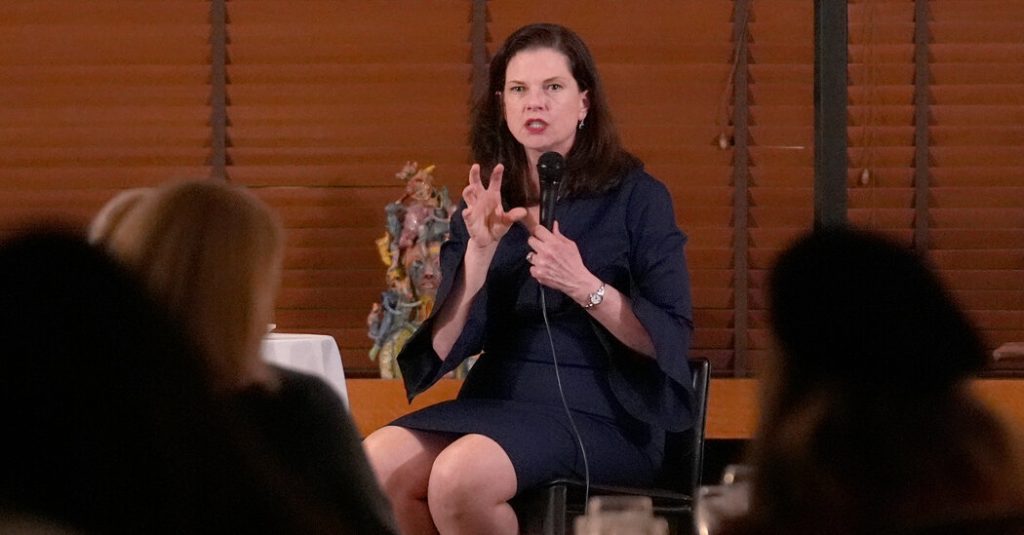In the primary election for the top prosecutor job in Cook County, Illinois, Eileen O’Neill Burke, a Democrat and retired appellate judge, defeated a more liberal candidate after a week of counting mail-in ballots. O’Neill Burke is expected to replace Kim Foxx, who did not seek reelection after two terms. Foxx promised to reform the criminal justice system with a progressive platform during her time in office. O’Neill Burke’s victory is seen as a move away from Foxx’s approach, with her opponent, Clayton Harris III, having Foxx’s support.
In the upcoming general election in November, O’Neill Burke will face Republican Bob Fioretti, a former alderman. Cook County, which includes Chicago, is heavily Democratic, making the Democratic primary winner the likely favorite to win. Crime is a significant political issue in Chicago, with voters concerned about shootings and homicides, particularly during the pandemic. Foxx and other progressive prosecutors have been criticized for policies seen as too lenient on criminal offenders.
The campaign in Chicago appeared to be a referendum on Foxx’s tenure as Cook County’s prosecutor, with her supporting abolition of cash bail, which was enacted in Illinois last year. Foxx faced criticism for her handling of the Jussie Smollett case, among other issues. O’Neill Burke has pledged to be tougher on offenders convicted of low-level crimes and reverse some of Foxx’s policies, such as only prosecuting retail theft as a felony if the stolen goods’ value exceeds $1,000.
Both candidates, O’Neill Burke and Harris, support the state’s decision to end cash bail and promise to continue restorative justice measures championed by Foxx. They received support from different corners of the region’s Democratic Party, with Harris backed by labor and progressive establishments, while O’Neill Burke attracted support from the business community. Both candidates emphasize their experience, with O’Neill Burke highlighting her legal background and judgeship, while Harris focuses on his teaching and government work.
In the lead-up to the election, voters in Cook County appeared disengaged, with a poll showing nearly 60 percent undecided. The candidates offered similar platforms but differed in their approach and support base. O’Neill Burke’s victory represents a shift from the progressive policies of Foxx and indicates potential changes in the county’s criminal justice system under her leadership. As the general election approaches, O’Neill Burke will face a tough race against Republican Fioretti but remains the frontrunner in heavily Democratic Cook County.


